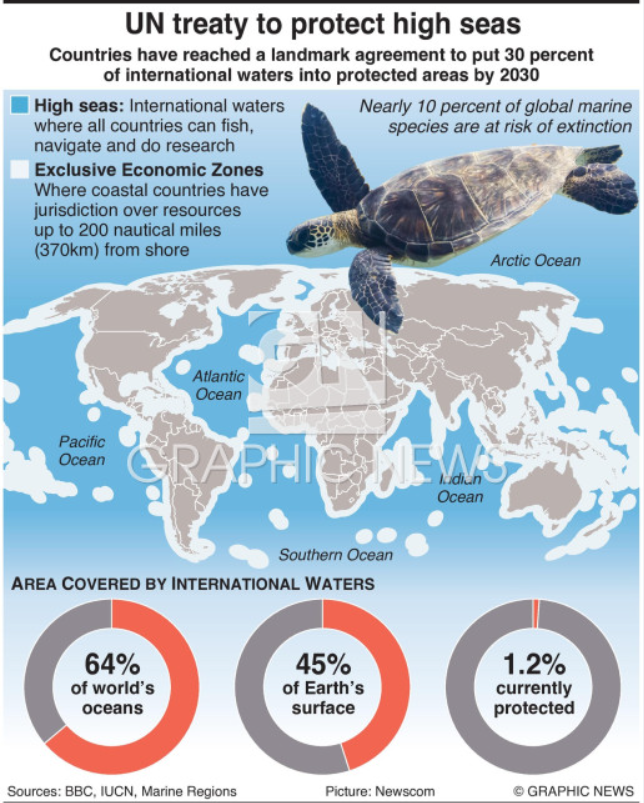India unlikely to ratify ‘High Seas Treaty’ at U.N. Ocean Conference

Context:
-
Treaty Name: Biodiversity Beyond National Jurisdiction (BBNJ) — a.k.a. High Seas Treaty
-
Event: U.N. Ocean Conference 2025, Nice, France
-
India’s Status: Signed in Sept 2024, but ratification pending
India’s Position:
-
Unlikely to ratify during the current conference
-
Reason: Requires amendments to the Biological Diversity Act and possibly other legal frameworks
-
Next Steps: Could be taken up after Monsoon Session (July–August 2025) in Parliament
Treaty Status (as of June 10, 2025):
-
49 countries ratified
-
Needs 60 ratifications to enter into legal force
🌐 Key Features of the BBNJ/High Seas Treaty:
-
Governs marine biodiversity in areas beyond national jurisdictions (ABNJ), i.e., high seas
-
Seeks equitable sharing of marine genetic resources and benefits
-
Contentious issue: Mechanism for resource sharing still under debate
-
Promotes marine conservation and sustainable use
India’s Ocean Commitments at the Conference:
-
Samudrayaan Mission:
-
India’s manned submersible to explore up to 6,000 m ocean depth
-
Trial by 2026
-
-
Plastic Pollution:
-
Nationwide ban on single-use plastics
-
Push for a legally binding Global Plastics Treaty
-
-
Blue Economy:
-
Highlighted $80 billion+ investments in sustainable marine sectors
-
-
Digital Ocean Portal:
-
Launched ‘SAHAV’ portal for integrated ocean data access
-
📝 UPSC Relevance:
Prelims:
-
High Seas Treaty (BBNJ), SAHAV portal, Samudrayaan mission, Blue Economy
Mains – GS III (Environment & Biodiversity):
-
India’s role in global marine conservation
-
Legal and institutional challenges in ratifying international treaties
-
Balance between economic development and environmental sustainability
